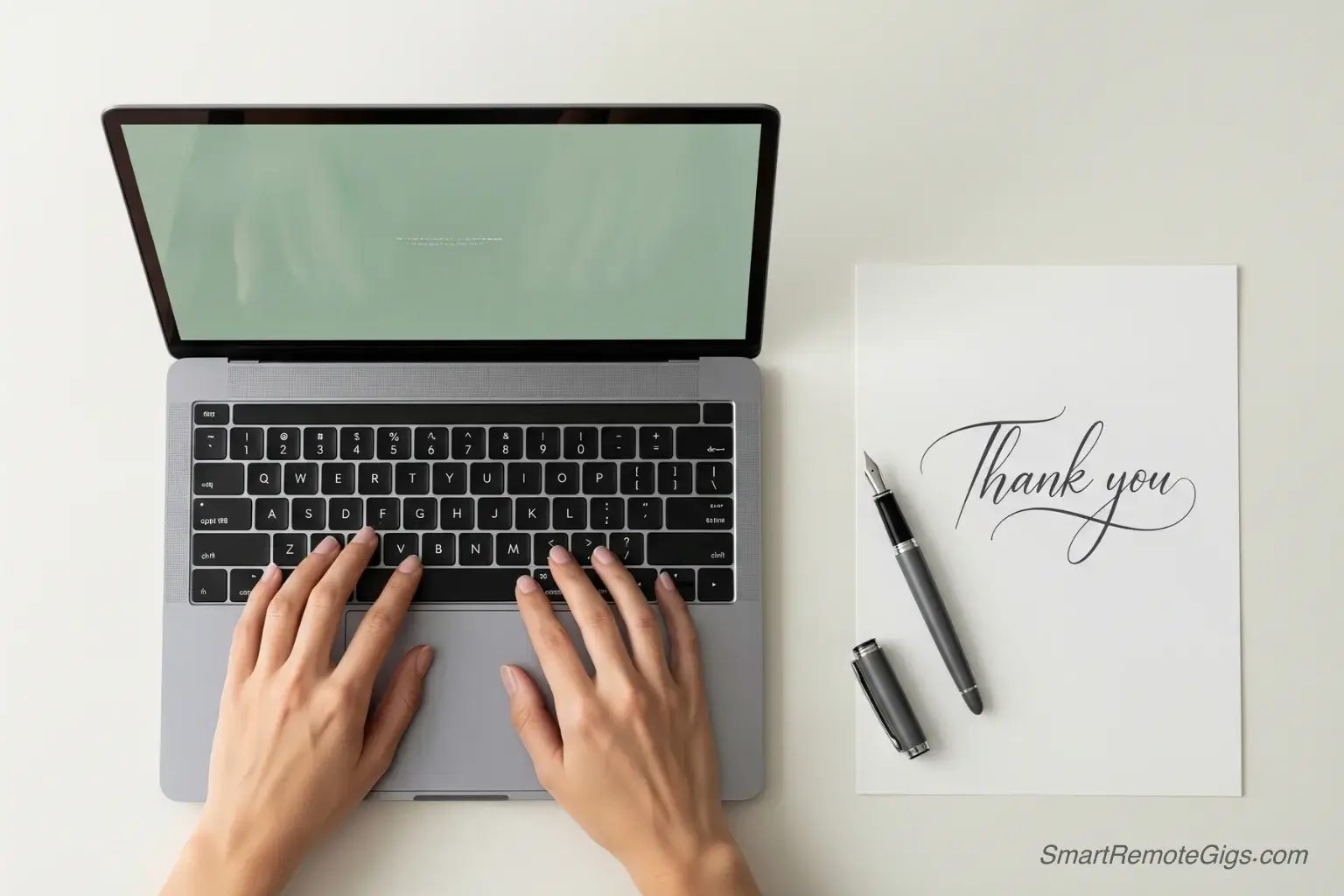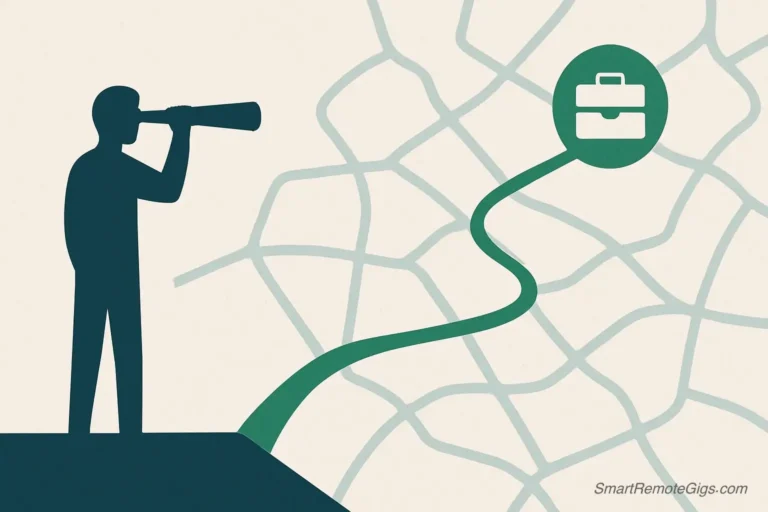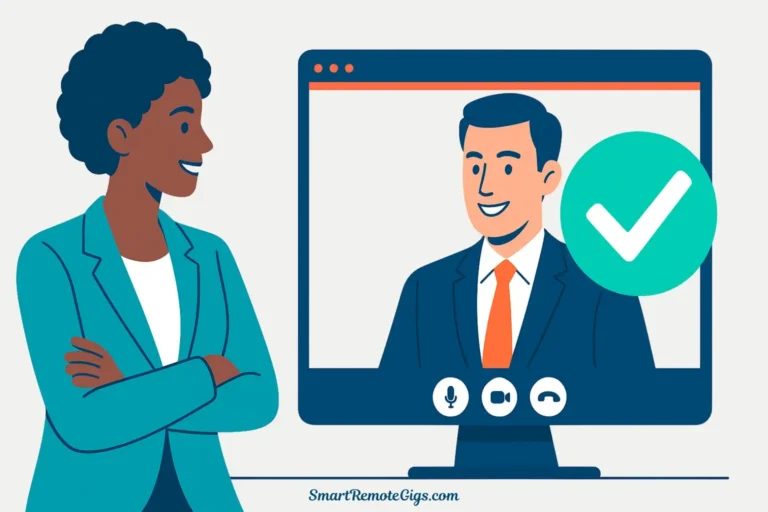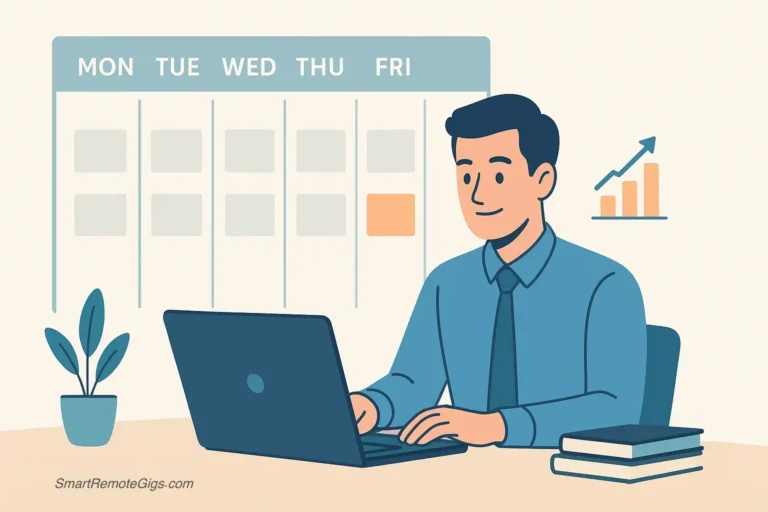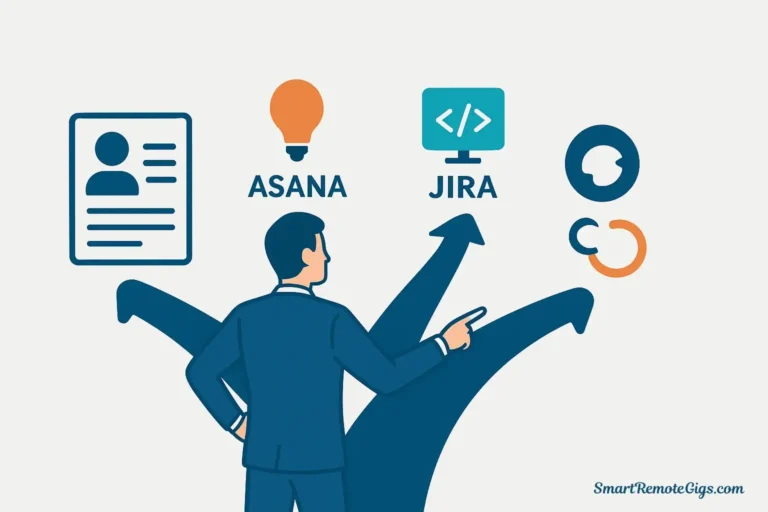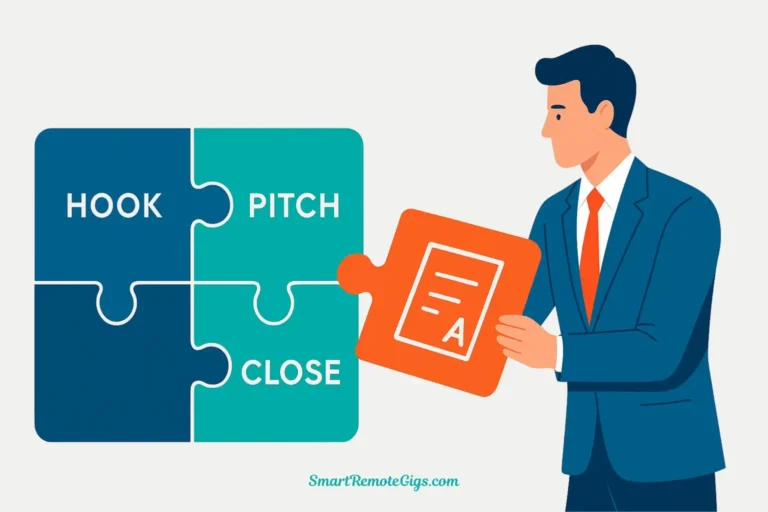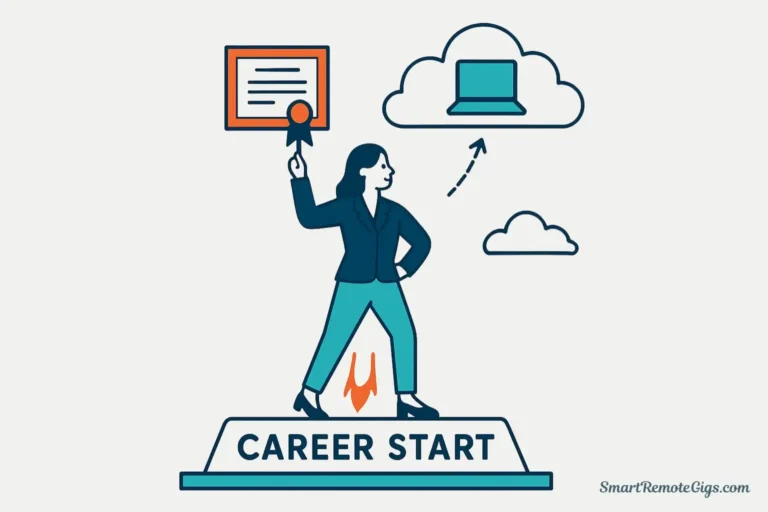You just finished your remote interview, closed your laptop, and immediately started second-guessing everything you said. Now you’re staring at a blank email draft, wondering how to craft the perfect thank you email after remote interview that reinforces your candidacy without seeming desperate or generic.
Here’s the truth: most candidates either skip the follow-up entirely or send forgettable, template-sounding messages that hiring managers delete without a second thought. This creates a massive opportunity for job seekers who understand how to follow up after zoom interview effectively.
The perfect interview thank you email template does more than express gratitude—it strategically reinforces your fit for the role, demonstrates your communication skills, and keeps you top-of-mind during the decision-making process. Remote employers particularly value strong written communication, making your follow-up email a crucial final impression.
Why Your Follow-Up Email Matters More for Remote Roles
Remote work success hinges on written communication skills, and your thank you email serves as a real-time demonstration of this critical capability. While in-person roles might rely more on verbal communication and body language, remote positions require employees who can convey professionalism, clarity, and personality through text alone.
Your follow-up email is your final audition for the role. Hiring managers will evaluate your message’s tone, organization, attention to detail, and ability to reference specific conversation points—all skills that directly translate to remote work success.
Remote interviews often feel more impersonal than face-to-face meetings, making written follow-up even more important for building personal connection. A well-crafted email helps hiring managers remember you as an individual rather than just another video call in their busy schedule.
The stakes are higher because remote managers need to trust that you’ll communicate proactively and professionally when working independently. Your thank you email demonstrates whether you possess the self-direction and communication excellence that remote work demands.
Most importantly, remote hiring decisions often involve multiple stakeholders who weren’t present during your interview. A strong follow-up email gets forwarded to decision-makers, extending your influence beyond the original interview participants.
The 4-Part Formula for a Perfect Thank You Email
Every effective thank you email after remote interview follows the same proven structure. This formula ensures you hit all the essential elements while maintaining professional tone and appropriate length.
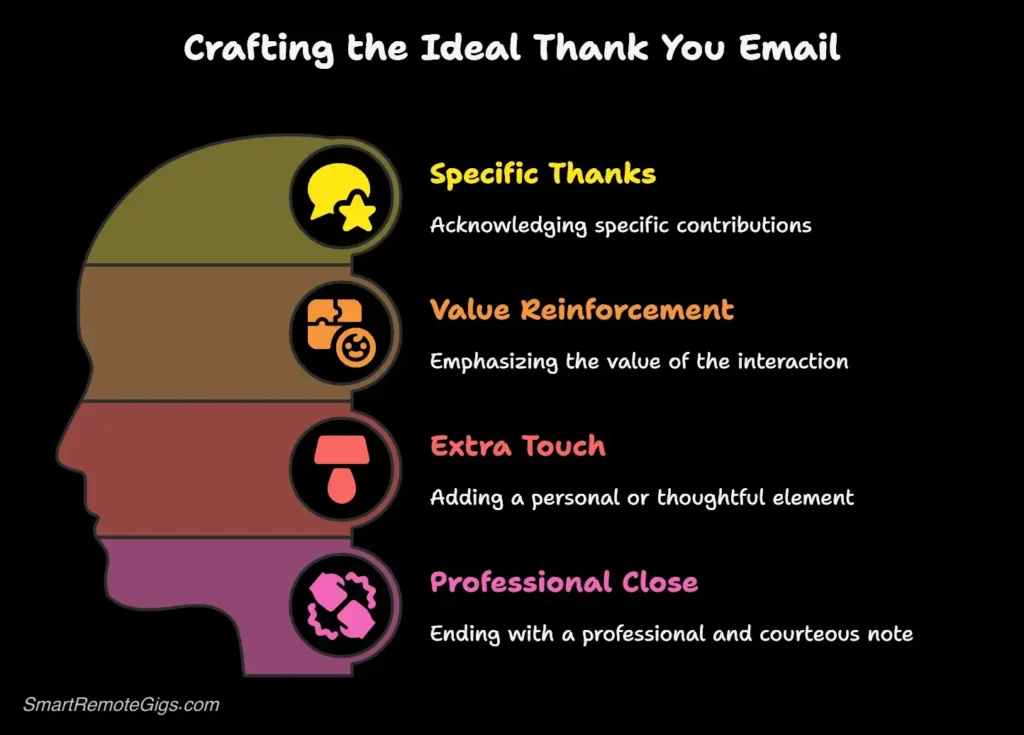
Part 1: The Specific Thanks
Reference something unique from your conversation to prove you were actively engaged and paying attention. Generic thanks like “thank you for your time” immediately signal mass-produced follow-up.
Mention specific details such as a project they described, a challenge they’re facing, or an insight they shared about company culture. This personal touch demonstrates genuine interest and strong listening skills.
Example: “Thank you for taking the time to explain the customer onboarding challenges you’re currently facing and how this role would help streamline that process.”
Part 2: The Value Reinforcement
Briefly connect your skills to their specific needs without rehashing your entire resume. Choose one or two key qualifications that directly address problems they mentioned during the interview.
Be specific about how you can contribute rather than making vague statements about being “a good fit.” Remote managers want concrete evidence of how you’ll add value from day one.
Example: “Our discussion reinforced my excitement about bringing my experience with CRM automation to help reduce those customer onboarding bottlenecks you mentioned.”
Part 3: The “Extra Touch” (Optional)
Add something valuable that wasn’t covered in the interview to demonstrate proactive thinking and genuine investment in their success. This could be a relevant article, resource, or additional qualification.
Keep this brief and relevant—the goal is adding value, not overwhelming them with information. Skip this section if you can’t think of something genuinely useful.
Example: “I came across this article about customer onboarding best practices that reminded me of our conversation. Thought you might find it interesting: [link]”
Part 4: The Professional Close
Reiterate your enthusiasm for the opportunity while acknowledging their timeline and decision-making process. This shows respect for their process while maintaining your interest.
State clear next steps if they were discussed, or offer your availability for any additional questions. End with professional sign-off that matches the tone of your interview.
Example: “I’m very excited about the possibility of joining your team and contributing to the customer success initiatives we discussed. Please let me know if you need any additional information from me.”
3 “Copy & Paste” Templates for Any Situation
These templates provide starting points that you can customize based on your specific interview experience and target role. Personalization is crucial—modify the details to reflect your actual conversation.
Template 1: The Standard Professional Follow-Up
Subject: Thank you – [Position Title] Interview
Dear [Interviewer’s Name],
Thank you for taking the time to discuss the [Position Title] role with me today. I particularly appreciated learning about [specific project/challenge/company initiative they mentioned] and how this position would contribute to [specific goal they discussed].
Our conversation reinforced my enthusiasm for joining [Company Name]. My experience with [relevant skill/achievement] aligns perfectly with the [specific need they mentioned], and I’m excited about the opportunity to [specific contribution you could make].
I’m very interested in moving forward and am available for any additional conversations or assessments you might need. Thank you again for your consideration, and I look forward to hearing about the next steps.
Best regards, [Your Name]
Template 2: The “I Forgot to Mention This” Follow-Up
Subject: Thank you + Additional Thought on [Specific Topic]
Hi [Interviewer’s Name],
Thank you for the engaging conversation about the [Position Title] role. I enjoyed learning about [specific detail from the interview] and discussing how my background in [relevant area] could contribute to your team’s goals.
After our call, I realized I didn’t mention my experience with [relevant skill/project/achievement] that directly relates to the [challenge/goal they discussed]. This experience involved [brief, specific example] which resulted in [concrete outcome].
I remain very excited about the opportunity to contribute to [Company Name] and help [specific way you could add value]. Please let me know if you have any additional questions or if there’s anything else I can provide to support your decision-making process.
Best regards, [Your Name]
Template 3: The Follow-Up After a Technical or Panel Interview
Subject: Thank you – [Position Title] Interview with [Team Name/Multiple Names]
Dear [Primary Interviewer’s Name] and team,
Thank you all for the comprehensive interview process today. I appreciated the opportunity to discuss [specific technical challenge/project] with [specific team member’s name] and learn about [specific company initiative/goal] from [another team member’s name].
The technical discussion about [specific technology/process] was particularly engaging, and I’m confident that my experience with [relevant technical skill] and approach to [relevant methodology] would help address the [specific challenge they mentioned].
I was impressed by [specific aspect of company culture/team dynamic you observed] and am excited about the possibility of contributing to [specific project/goal discussed]. The collaborative approach your team demonstrated aligns perfectly with my work style and values.
Thank you again for your time and thorough evaluation process. I look forward to hearing about the next steps and am available for any additional technical assessments or conversations you might need.
Best regards, [Your Name]
3 Common Mistakes That Will Get Your Email Deleted
Mistake 1: Sending Too Late
The window for impact closes quickly. Send your thank you email within 24 hours of your interview, ideally within 2-4 hours if the interview was in the morning. Delayed follow-ups suggest poor time management skills—a red flag for remote work.
Same-day sends show enthusiasm and efficiency, qualities that remote managers value highly. Late follow-ups often arrive after hiring decisions have already been made.
Mistake 2: Being Too Generic
Mass-produced thank you emails are immediately obvious and create negative impressions. If your email could apply to any interview at any company, you’ve missed the opportunity entirely.
Specific references to your conversation prove engagement and demonstrate the listening skills essential for remote work success. Generic emails suggest you weren’t paying attention or don’t care enough to personalize your response.
Mistake 3: Having Typos or Errors
Grammar mistakes in thank you emails are career killers for remote positions. Since written communication is paramount in remote work, errors signal fundamental incompetence in a core job requirement.
Proofread multiple times and consider reading your email aloud before sending. Better yet, paste it into Grammarly or similar tools to catch errors you might miss.
Pay special attention to names, company details, and job titles. Misspelling the interviewer’s name or company name demonstrates carelessness that hiring managers won’t forget.
Advanced Follow-Up Strategies
For competitive positions or roles you’re particularly excited about, consider these advanced techniques that can help you stand out from other qualified candidates.
The strategic question technique involves asking one thoughtful question related to your conversation that demonstrates deep thinking about the role. This keeps the dialogue open while showing genuine engagement.
The proactive value-add approach includes sharing a relevant resource, article, or insight that connects to challenges they mentioned. This demonstrates industry knowledge and proactive thinking.
The timeline acknowledgment strategy shows respect for their decision-making process while keeping your interest clear. Reference their hiring timeline and confirm your availability accordingly.
Conclusion: Sealing the Deal
A masterful thank you email after remote interview can be the deciding factor between you and another equally qualified candidate. In the remote work world, where cultural fit and communication skills often matter more than technical qualifications, your follow-up email provides crucial evidence of both.
The candidates who get hired consistently understand that interviews don’t end when the video call stops. They extend the positive impression through strategic, personalized follow-up that reinforces their value while demonstrating the professional communication skills that remote work demands.
Your follow-up email is your final opportunity to influence the hiring decision. Make it count by being specific, valuable, and genuinely enthusiastic about the opportunity.
Ready to master every aspect of the remote interview process? Our Remote Job Interview Guide covers everything from camera setup and lighting to advanced questioning techniques that help you stand out in competitive remote hiring processes.
Transform your interview follow-up from afterthought to competitive advantage. Your dream remote job might depend on it.
Email templates and strategies based on analysis of successful remote job placements and hiring manager feedback. Customize all templates to reflect your specific interview experience and target role.
This guide provides a 4-part formula and 3 copy-and-paste templates to write the perfect thank you email after a remote interview. Learn how to reinforce your value, demonstrate communication skills, and avoid common mistakes.
Total Time: 15 minutes
Part 1: The Specific Thanks
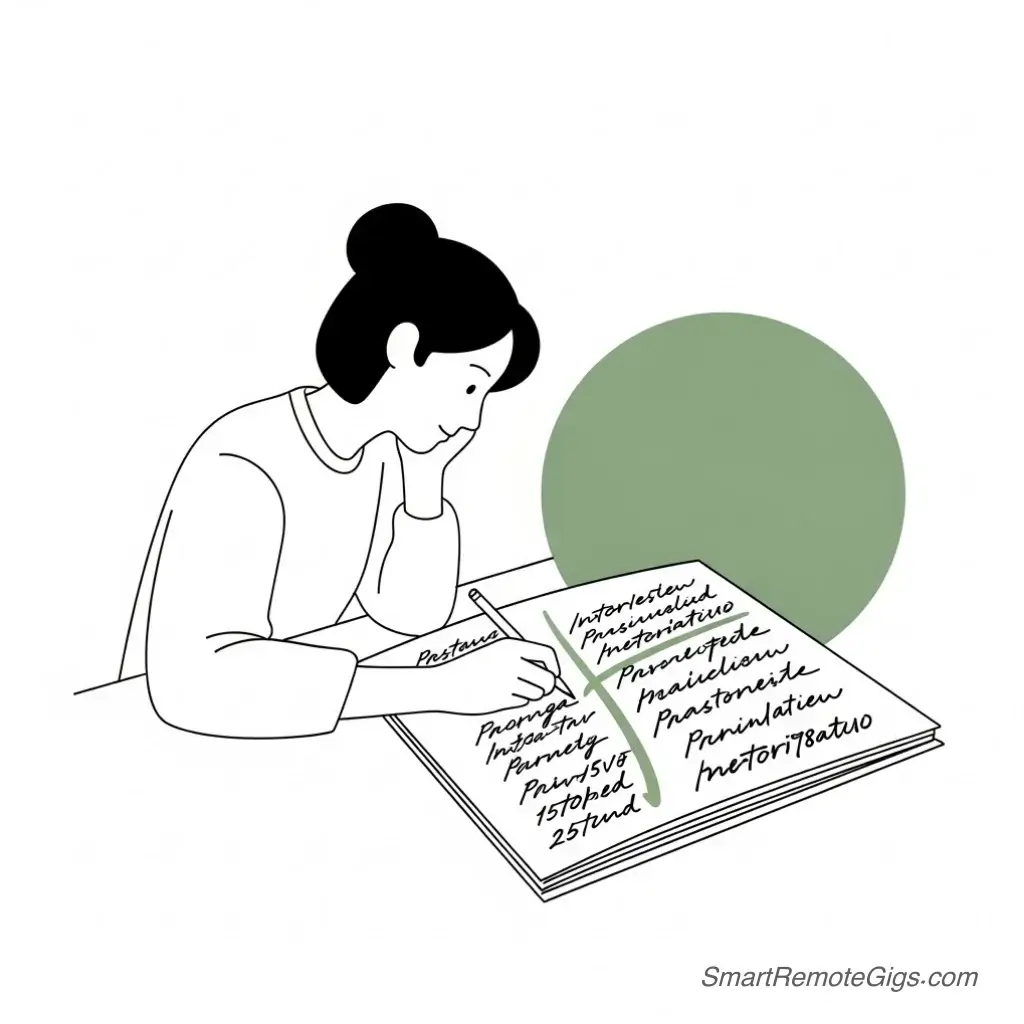
Start by referencing something unique from your conversation to prove you were actively engaged. Mention a specific project, challenge, or insight they shared. This personal touch demonstrates genuine interest and strong listening skills.
Part 2: The Value Reinforcement
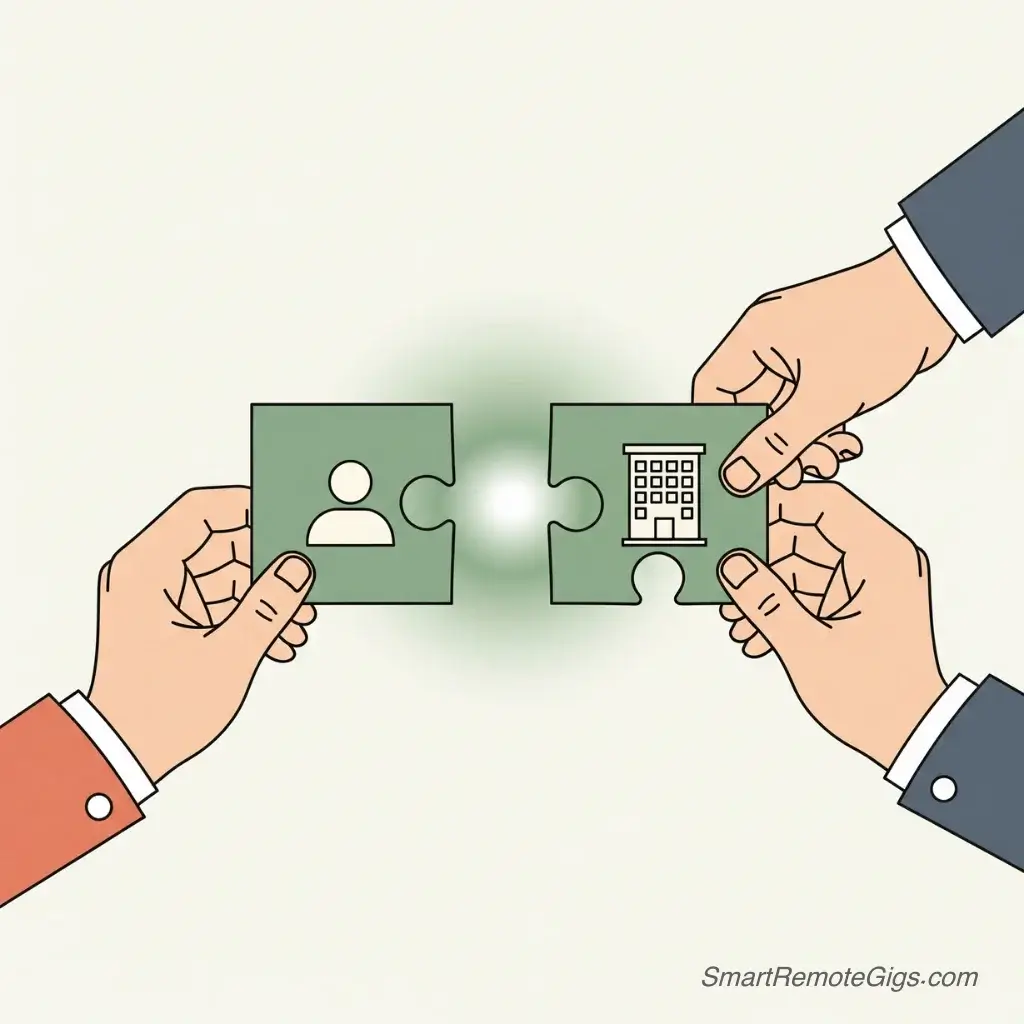
Briefly connect one or two of your key skills to their specific needs. Be specific about how you can contribute, reinforcing your fit for the role and demonstrating your understanding of their challenges.
Part 3: The “Extra Touch” (Optional)
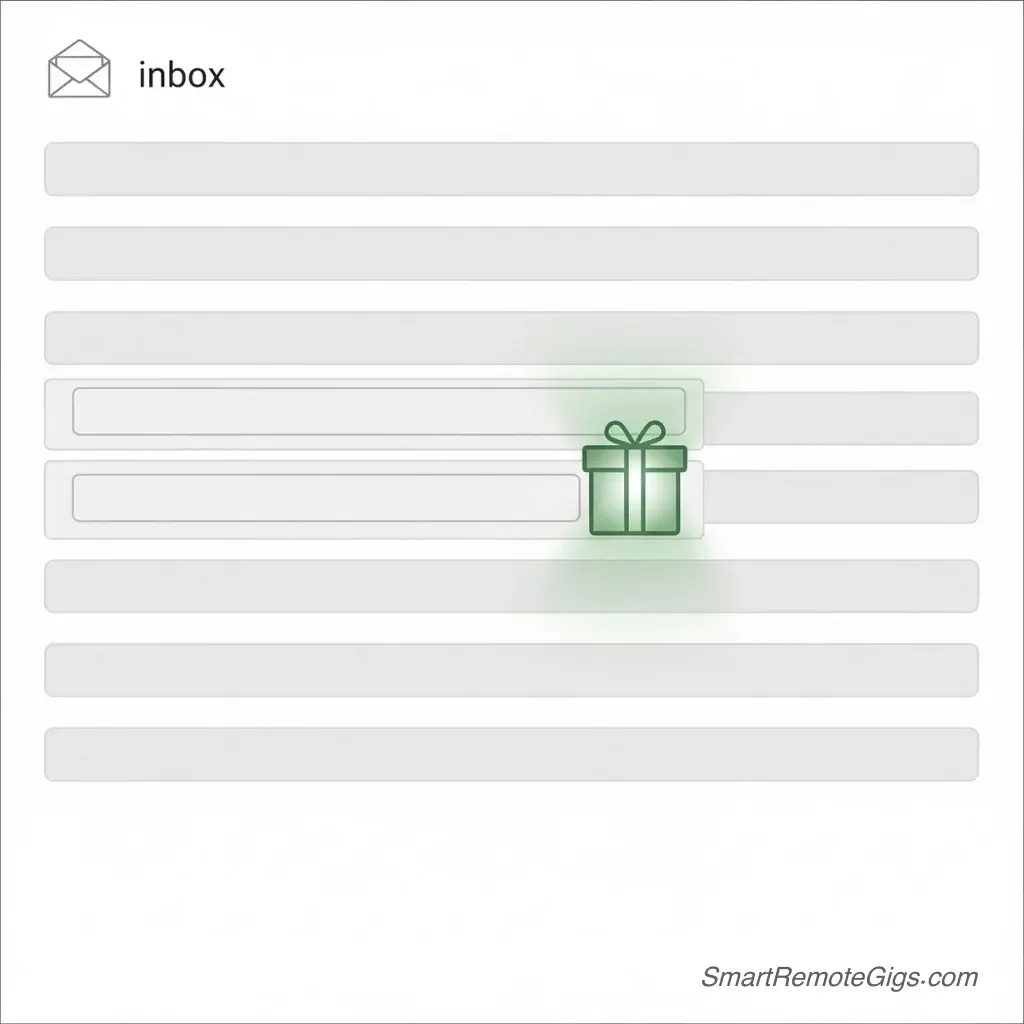
Add something valuable that wasn’t covered in the interview to demonstrate proactive thinking. This could be a relevant article, a resource, or an additional qualification. Keep it brief and genuinely useful.
Part 4: The Professional Close
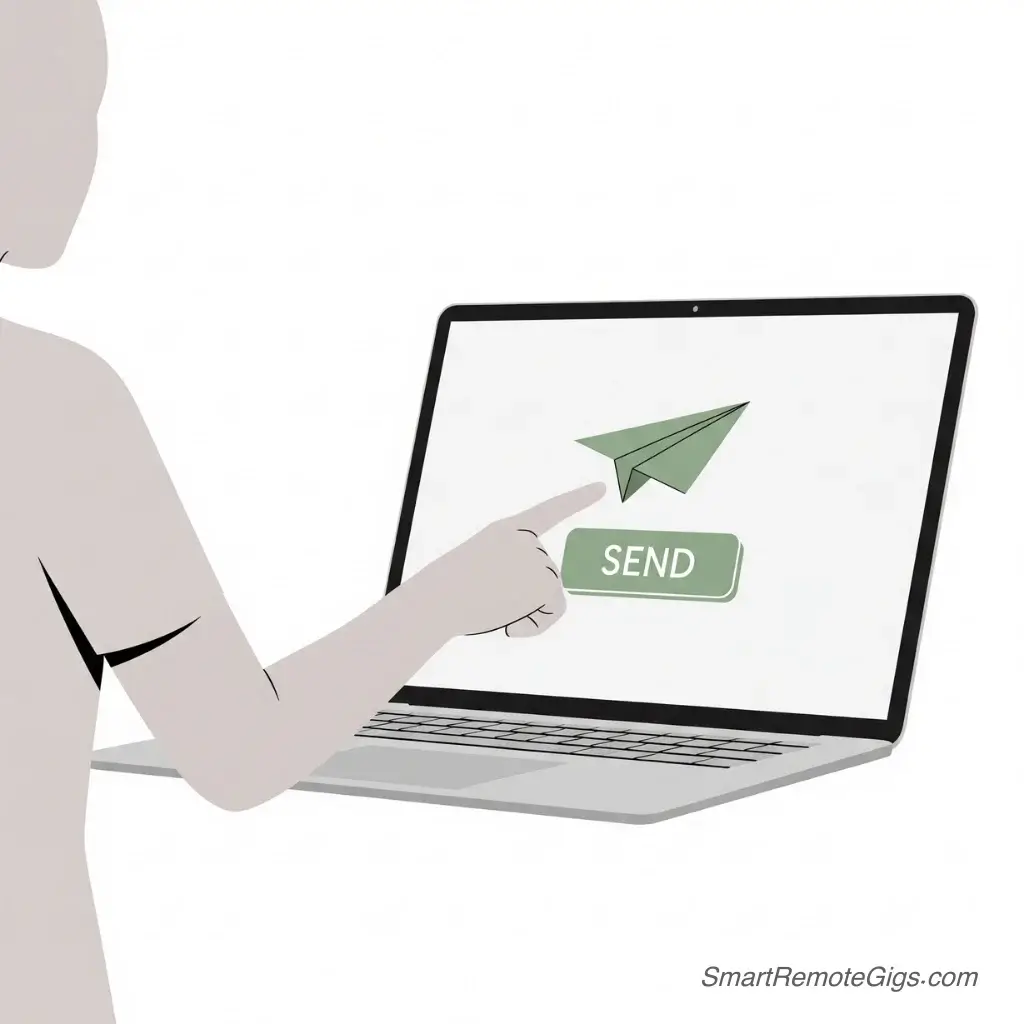
Reiterate your enthusiasm for the opportunity and acknowledge their timeline. State your availability for any additional questions and end with a professional sign-off that matches the tone of your interview.
Tools:
- An email client (e.g., Gmail, Outlook)
- The 4-part formula for a perfect thank you email
- A copy-and-paste template
- A grammar checker (e.g., Grammarly)

